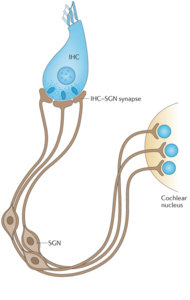No i have not told them about Hidden hearing loss but again they didt tell me something like HHL was a thing so i guess they dont know anything about it. HHL was something i learn about 3 mounth ago so something. And last time i was at a ENT were 4 mounth ago. I dont know what a ABR is they only took a hearing test and presure in my ears. And told me everything was fine :/ I have been there 2 times.My understand, ing is that the prime sign of HHL is bad hearing in a noisy environment. This matches with your description. I guess you might be right, but I don't know for sure...
They did the normal audiometry with audiogram? Have they done ABR? If you have a normal audiogram they should do the ABR test. If you have synaptopathy, which is one of the first causes of HHL as described initially by Liberman et. al. they will be able to tell that. But even here, the medical establishment is lacking. New discoveries like HHL take a time to translate into clinical use and protocol.
Have you talked to them about HHL? Do they know what it is?I doubt it.
It's sad that we have to diagnose ourselves, based on the latest research. But it is what it is. I hope this will all change when the first medical treatments for hearing loss come to the clinics. They will have to change their diagnostic protocols.
I think i have a little bit hearing loss to because when i was listing to this Beb sounds it was very hard to hear harder then back in the days when i was a child

But i have been doing some frequency test on this website myself http://www.szynalski.com/tone-generator/
And i can hear up to 15800-16000 before i cant hear it anymore and i have been told that i should be able to hear a little more in my age and im 22 and my T is a high freq sound

 Manager
Manager
 Member
Member

